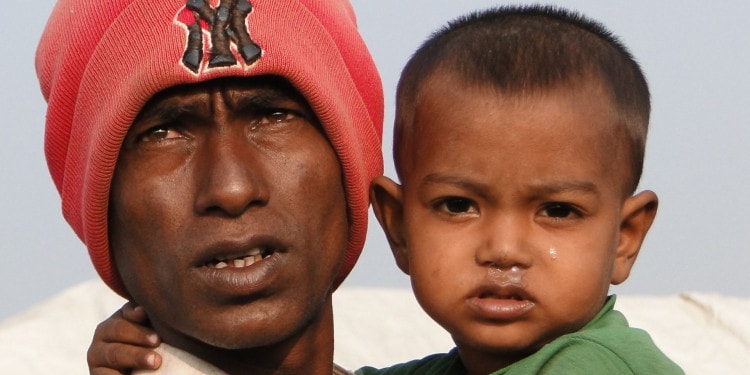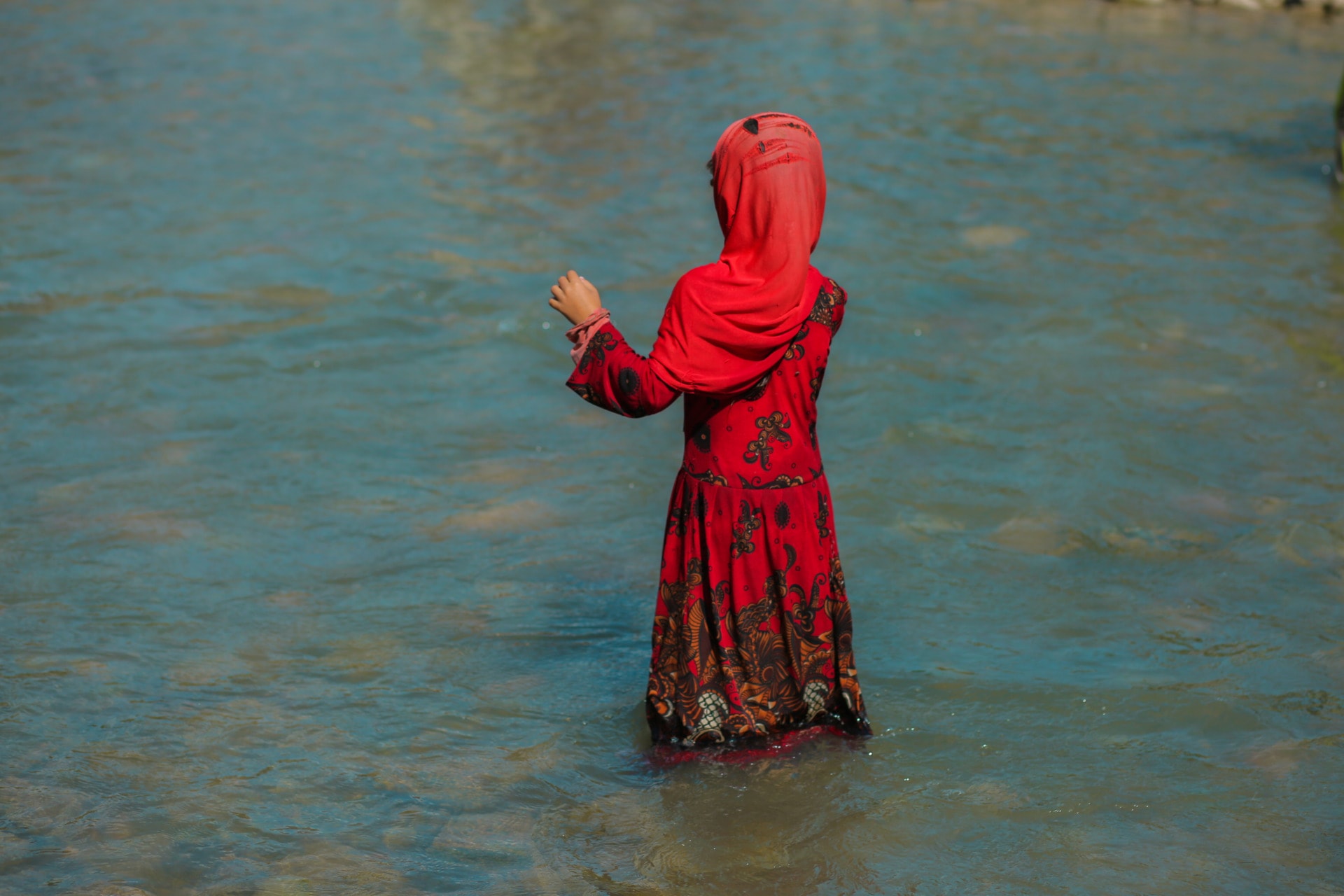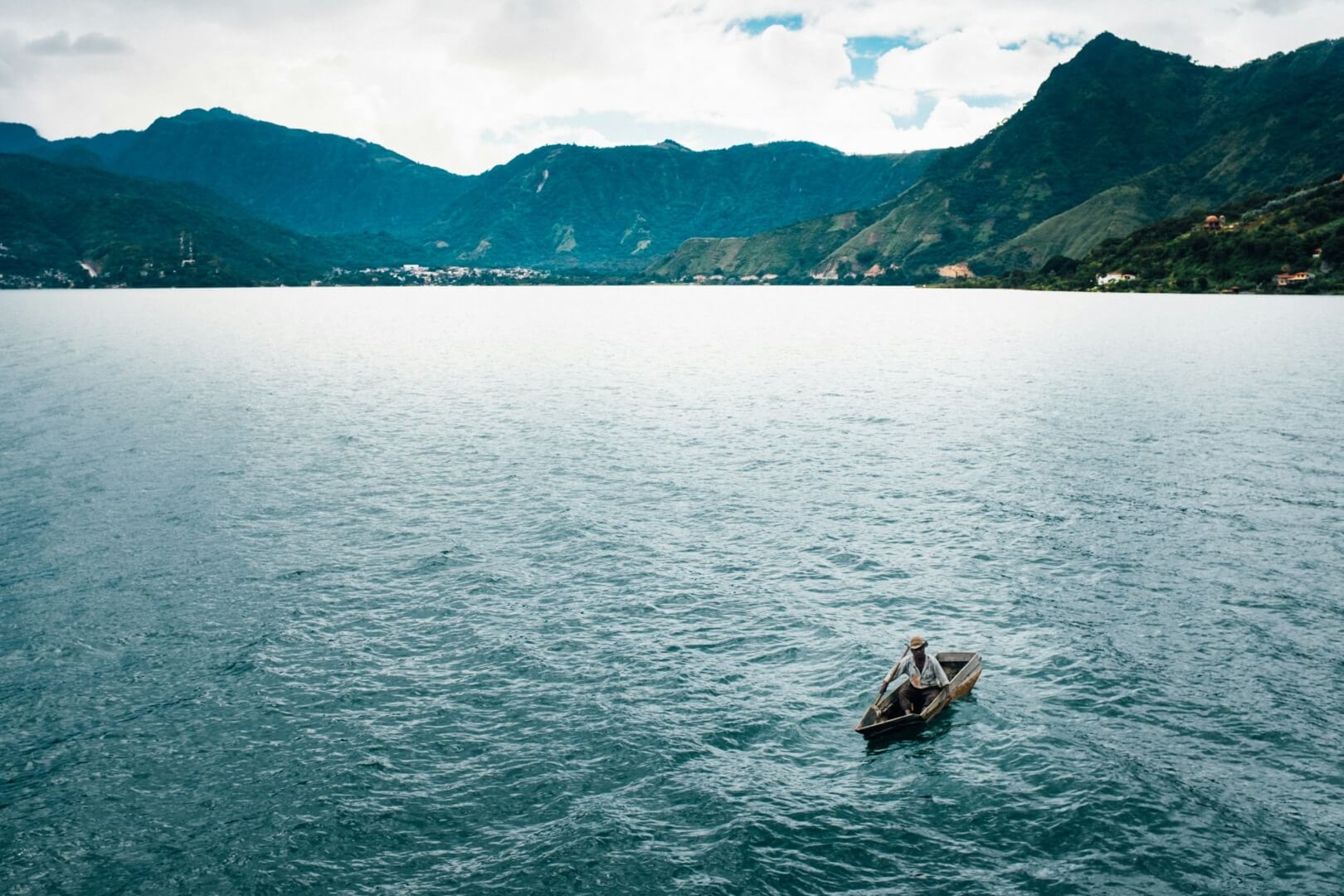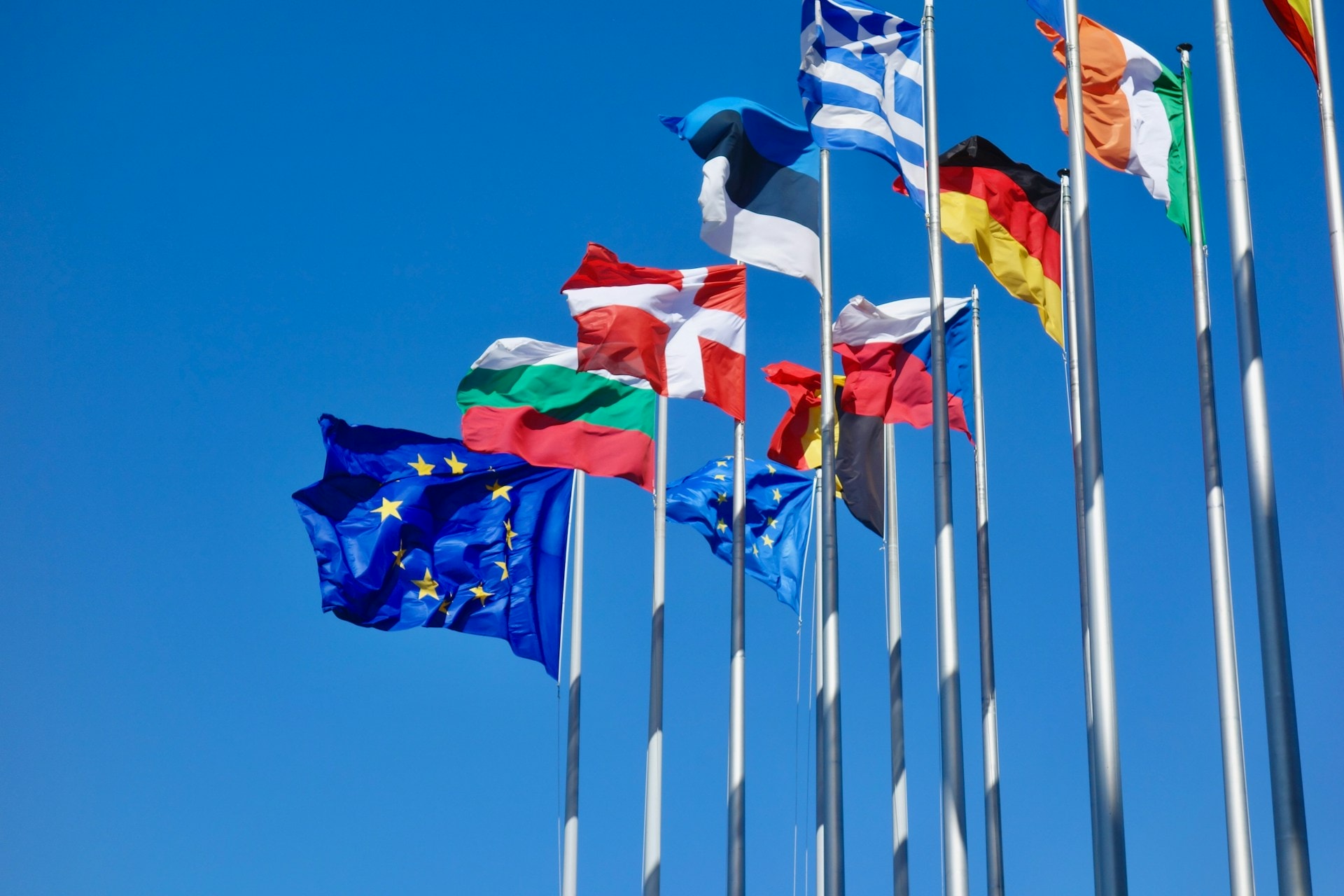The International Criminal Court (the ICC) is the only permanent international criminal tribunal with the mandate to investigate and prosecute mass atrocities. However, the ICC is a treaty-bound tribunal, the treaty being the Rome Statute. This very fact prevents the ICC from becoming a truly international criminal tribunal. However, as the ICC took a pro-active approach to the situation in Myanmar, this may mark a new era for the ICC becoming more relevant in fighting against impunity in instances where the ICC would ordinarily not have jurisdiction.
The ICC was specifically established to investigate and prosecute the most heinous international crimes. The jurisdiction of the ICC is defined in Article 5(1) of the Rome Statute to cover the crime of genocide, crimes against humanity, war crimes, and the crime of aggression. The ICC can exercise its jurisdiction as per Article 13, when a) a state party refers a situation to the Prosecutor, b) the UN Security Council refers the situation to the ICC, or c) the Prosecutor imitates investigations as per Article 15. Each method of engaging the ICC comes with its own challenges. The referrals under Article 13 a) of the Rome Statute are understood to mean only self-referral of State Parties and the provision has been used only in this manner. The referrals under Article 13 b) of the Rome Statute have been successful only on two occasions, namely, to refer the situation in Darfur (Sudan) and Libya to the ICC.
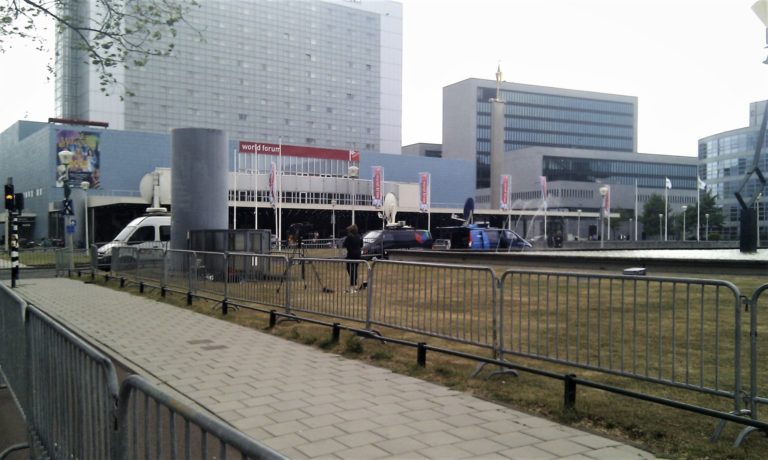
The 2014 referral of the situation in Syria to the ICC failed as per the vetoes from two permanent members of the UN Security Council (China and Russia). However, some of the most recent mass atrocities, the situations in Iraq (as per the Daesh atrocities) or in Myanmar (the atrocities perpetrated by the military against the Rohingya Muslims in Rakhine state) have never been attempted. For example, the UK Government, when asked whether it would consider such an option, relied on the possibility that if such a referral was tabled at the UN Security Council, Russia or China, very likely would have vetoed such ICC referrals as a matter of principle. Despite such a conclusion being unsubstantiated (both countries vetoed only one out of three such referrals before them), the argument has effectively prevented states from trying.
The least politically challenging option, one would think, would be for the ICC Prosecutor to initiate a case from his or her right (as per Article 13a) – less politically challenging than the UN Security Council referral but more politically challenging than a self-referral.
This is exactly what happened in the case of Myanmar. The situation in Myanmar is one that should be considered by the ICC. As reported by the UN Independent International Fact-Finding Mission on Myanmar, an investigative team established to scrutinize the situation in Myanmar, in its report published on 27 August 2018, as a result of this genocidal campaign, at least 392 villages were totally or partially destroyed. This amounts to 40 per cent of all villages in northern Rakhine. “Approximately 80 per cent were burned in the initial three weeks of the operations; a significant portion of which after the Government’s official end date of the “clearance operations.” Over 70 per cent of the destroyed villages were in Maungdaw, where the majority of Rohingya lived. Most destroyed structures were homes. Schools, marketplaces and mosques were also burned. Rohingya-populated areas were specifically targeted, with adjacent or nearby Rakhine settlements left unscathed.”
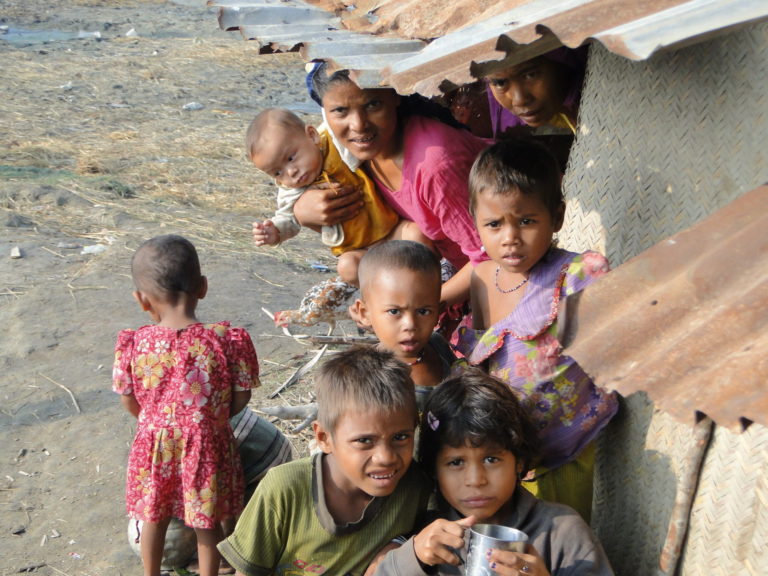
The report confirms that the Burmese military’s specific intent to destroy in whole or in part, an element distinguishing genocide from crimes against humanity, can be inferred from the atrocities themselves. However, the report emphasises that some of the statements made by top military officials may be read as a direct incitement to genocide. The report identified that “the nature, scale and organization of the operations suggests a level of preplanning and design on the part of the Tatmadaw (the military) leadership consistent with the vision of the Commander-in-Chief, Senior-General Min Aung Hlaing, who stated at the height of the operations: “The Bengali problem was a long-standing one which has become an unfinished job despite the efforts of the previous governments to solve it. The government in office is taking great care in solving the problem.” If we have learned anything from the Nazi atrocities, we should be able to read such metaphors with our eyes wide open. “Solving a problem” means nothing more than annihilating the targeted communities. The report recommends, among others, that the UN Security Council should “ensure accountability for crimes under international law committed in Myanmar, preferably by referring the situation to the International Criminal Court or alternatively by creating an ad hoc international criminal tribunal. Further, the Security Council should adopt targeted individual sanctions, including travel bans and asset freezes, against those who appear most responsible for serious crimes under international law. It should also impose an arms embargo on Myanmar.”
Myanmar is not a signatory of the Rome Statute and, hence, the ICC does not have a territorial jurisdiction over the situation there. States shied away from referring the situation to the ICC via the UN Security Council and, considering the position of the Burmese government, it became clear that the government would not voluntarily accept the jurisdiction of the ICC. In light of all of this and the overwhelming evidence of atrocities amounting to genocide, the ICC Prosecutor had to act.
However, before initiating the process, the ICC Prosecutor has reached out to the Pre-Trial Chamber Division to ensure that doing so would have been within her power. In April 2018, the Chief Prosecutor of the ICC, Ms Fatou Bensouda, sought a ruling from the President of the Pre-Trial Division on the question of the ICC’s jurisdiction in the case. The question she submitted asked ‘whether the Court may exercise jurisdiction over the alleged deportation of the Rohingya people from Myanmar to Bangladesh.’
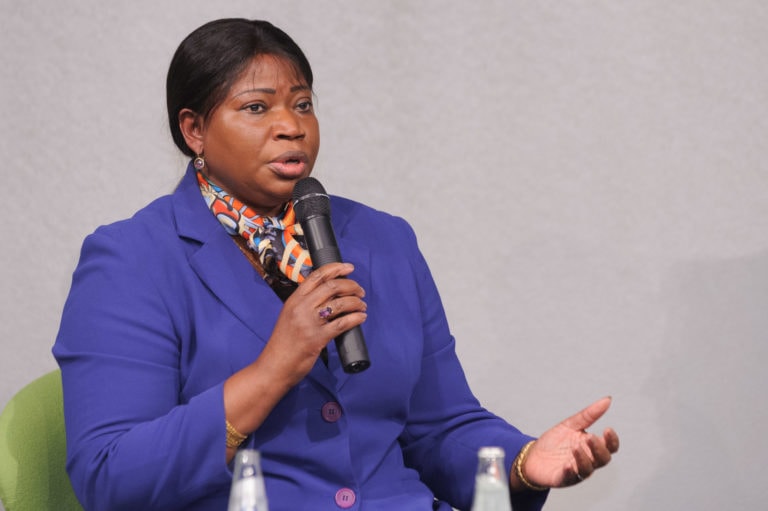
The ICC Chief Prosecutor’s submission contained information of consistent and credible public reports to suggest that since at least August 2017, ‘more than 670,000 Rohingya, lawfully present in Myanmar, have been intentionally deported across the international border into Bangladesh.’ The ICC Chief Prosecutor referred to recent statements of the UN High Commissioner for Human Rights who described the atrocities committed against the Rohingya Muslims in Myanmar as ‘a textbook example of ethnic cleansing’ as well as the UN Special Envoy for Human Rights in Myanmar who identified the situation as the ‘hallmarks of a genocide.’
The ICC Chief Prosecutor relied on evidence presented by the ‘UN Office of the High Commissioner for Human Rights (OHCHR), the UN Human Rights Council Independent International Fact-Finding Mission on Myanmar, the UN Special Rapporteur on the Situation of Human Rights in Myanmar, the UN Office of the High Commissioner for Refugees (UNHCR), the International Organization for Migration Inter Sector Coordination Group (ISCG), the UN Children’s Fund (UNICEF), Human Rights Watch, Amnesty International, Fortify Rights, Médecins Sans Frontières, and the International Rescue Committee’ and corroborative video footage and reports, as well as 42 individual communications received by the Office of the Prosecutor.
Again, the ICC does not have the territorial jurisdiction over the situation in Myanmar, that much is clear. Ms. Bensouda’s question focuses, instead, on Bangladesh which is a signatory to the Rome Statute. The ICC Chief Prosecutor’s submission seeks to clarify whether the ICC can exercise jurisdiction ‘when persons are deported from the territory of a State which is not a party to the Statute directly into the territory of a State which is a party to the Statute’ to be able to investigate the crime and prosecute the perpetrators.
The focus of the question is limited to the forcible deportation (which is a crime against humanity under Article 7(1)(d) of the Rome Statute) of the Rohingya Muslims and not on any other crimes that are alleged to have been perpetrated within the territory of Myanmar. The referral is limited purely because of the lack of territorial jurisdiction over the situation in Myanmar. The question of cross-border deportation may provide the ICC with enough jurisdiction to conduct investigations into the situation of the Rohingya Muslims and to commence prosecutions.
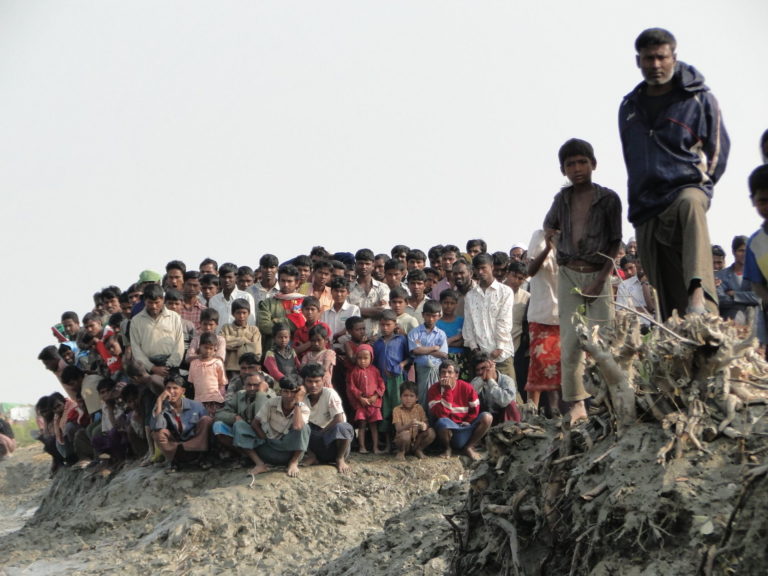
In 2018, the Burmese government was asked by the International Criminal Court to comment on certain issues to allow the ICC to consider whether the ICC would have jurisdiction over the deportations of over 700,000 Rohingya Muslims from Myanmar (a non-party to the Rome Statute that established the ICC and its jurisdiction) to Bangladesh (a state-party to the Rome Statute). In a statement dated August 9, 2018, the Burmese government declined to engage with the ICC by way of a formal reply stating that such a request for engagement may be “interpreted as an indirect attempt to acquire jurisdiction over Myanmar which is not a State Party to the Rome Statute.
The Burmese government further accused the ICC process of lacking fairness and transparency, and said that the court was allowing organisations to file amicus curiae submissions that the Burmese government branded as containing “allegations consisting of mostly charged narratives of harrowing personal tragedies calculated to place emotional pressure on the Court.” The Burmese government concluded that the “Prosecution’s Request for a Ruling on Jurisdiction under Article 19(3) of the Statute is meritless and should be dismissed.”
The Burmese government confirmed that in July 2018, it established an Independent Commission of Enquiry (ICE). The ICE reportedly consists of four members: two international and two national members. The ICE is to investigate the ‘allegations of human rights violations and related issues following the terror attacks by the Arakan Rohingya Salvation Army’ (The Arakan Rohingya Salvation Army is an insurgency group that the Burmese government blamed for the atrocities in Myanmar and the forced displacement of over 700,000 people). The question is whether the ICE, a government established body, can deliver an independent and transparent inquiry, especially as the government is accused of having been complicit — whether by authorizing or not attempting to end — in the mass atrocities perpetrated against the Rohingya Muslims by the Burmese military. This, as confirmed in the recent report, is indeed highly unlikely.
Editor’s Picks – Related Articles:
The Unbearable Situation of Children in Armed Conflicts Around the World
A Life Dedicated to Refugees: Interview with Kelly Clements
On 18 September 2018, the ICC Prosecutor, Mrs. Fatou Bensouda, officially opened the preliminary examination concerning the fate of the Rohingyas. It is now clear that some steps towards accountability will be taken. However, it has to be emphasized that the scope of the preliminary examination is limited primarily to the alleged deportation of the Rohingya people from Myanmar to Bangladesh. To be able to do so, the preliminary examination will thereby engage with the following: “alleged coercive acts having resulted in the forced displacement of the Rohingya people, including deprivation of fundamental rights, killing, sexual violence, enforced disappearance, destruction and looting.” Nonetheless, there may be limitations that the ICC would not have experienced if the UN Security Council had referred the situation in Myanmar to the ICC. Only time will tell. However, more could have been done to address the situation in Myanmar.
The ICC was established to remove the burden of requesting and overseeing the investigation and prosecution of international criminal law violations from the UN Security Council. Ironically, in many cases a referral will not occur without the UN Security Council’s explicit request or the states voluntarily acceptance of the jurisdiction of the ICC and the legal transfer of the situation in their territories to the ICC. However, the steps taken to address the situation in Myanmar may mark a new era of more activism from the ICC.


